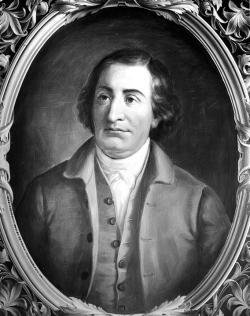Over the next few weeks, some of Slate’s favorite legal eagles are proposing their favorite Constitutional amendments, in the service of our effort, with Me the People author Kevin Bleyer, to rewrite the founding document. Here are the proposals we’ve run so far, about the right to trial by jury, protecting informational privacy, and amending the Constitution by popular sovereignty.
Electing the Attorney General (Article II)
My proposal, which I have offered before, is that the attorney general be elected, rather than appointed by the president. It makes practical and democratic sense.
The Framers at Philadelphia were detailed about setting out the powers of Congress. But in creating an elected chief of state, they were flying blind, and they sought refuge in vagueness. Article II begins simply: “The executive Power shall be vested in a President of the United States of America.” A few specific powers are then listed, but most of the office is left to the imagination.
As a result, power has flowed to the president since the first days of the new republic. The executive branch is the only one in which one person makes all important decisions. Congress’ power is checked significantly by bicameralism—measures that pass one house are reconsidered, and may fail, in the other. The Supreme Court can’t make a binding decision unless a majority of justices concur. Only the president decides alone. Presidents have seized any federal power that is not nailed down, from the power to commit federal troops to military action “short” of war to the power to jail, torture, and even assassinate U.S. citizens.
The president’s legal arm is the Department of Justice, headed by the attorney general. When Washington took office in 1789, the attorney general was not even a member of the Cabinet—in fact, the first one, Edmund Randolph, had so little to do that he maintained a private law practice. Today, the attorney general commands all federal litigation, all federal criminal prosecution, and the massive machinery of the FBI. Most of that power is supposed to be exercised in a politically neutral way, not according to a president’s political agenda. But that’s often wishful thinking. The president appoints attorneys general—and dismisses them when their conduct displeases. Through the Office of Legal Counsel, the attorney general decides whether the president has the authority to do what he wants to do. This is too much power, and also a conflict of interest.
During the 1970s, some reformers proposed that the AG should be selected by an independent panel, or should serve a fixed term without being removable by the president. But those proposals would make matters worse. An appointed attorney general who can’t be removed is accountable to no one; an unelected appointing authority makes the office the gift of an elite. The massive power of the Justice Department should flow from the people; it requires popular election. Under the common law of England, which created the first attorneys general, the AG is the safeguard and protector of the public interest; the public should judge how an AG has done that job.
An elected AG might be a fool or a knave, but appointed AGs have been both, and when they were, they were also usually tools of the White House. If the AG were elected, the new structure would embody James Madison’s principle that “ambition must be made to counteract ambition.” The White House would have every reason to monitor the Attorney General’s excesses, and an independent Justice Department would have both the power and the motive to curb a president’s move to go outside the law.
Consider the Bush Administration’s rush to approve torture after 9/11. If the AG had been separately elected, Justice Department officials might have stood up to George W. Bush and Dick Cheney. A divided executive branch might have other deficiencies, but it would not have the kind of secretive, malign efficiency the torture episode revealed.
Here’s my proposed amendment for Article II:
Office of the Attorney General
The legal, law enforcement and investigative functions of the Department of Justice and other legal duties as shall be specified by law shall be vested in one attorney general, who shall be elected by vote of the people for a term of four years during those years in which members of Congress shall be elected but no presidential election shall be conducted.
The attorney general shall represent the United States and shall conduct the law-enforcement and investigative functions of the department, and all other duties as shall be assigned by law, in conformity with this Constitution, laws made pursuant to it and treaties made or which shall be made under the authority of the United States. In conducting his duties, the Attorney General shall at all times safeguard the public interest.
The attorney general shall give the president legal advice, in writing, at the president’s request and at other appropriate times and shall inform the president of the actions taken by the Justice Department, and shall attend sessions of the Cabinet; however, the president may not require the resignation of the attorney general.
The attorney general shall from time to time give to the Congress information of the state of the legal and law-enforcement policy and actions of the United States, and shall furnish to Congress information requested concerning the same, excepting only such information as may compromise ongoing legal investigations or reveal information properly classified.
We want your ideas for fixing the Constitution. Submit them here and vote on other great ideas.
